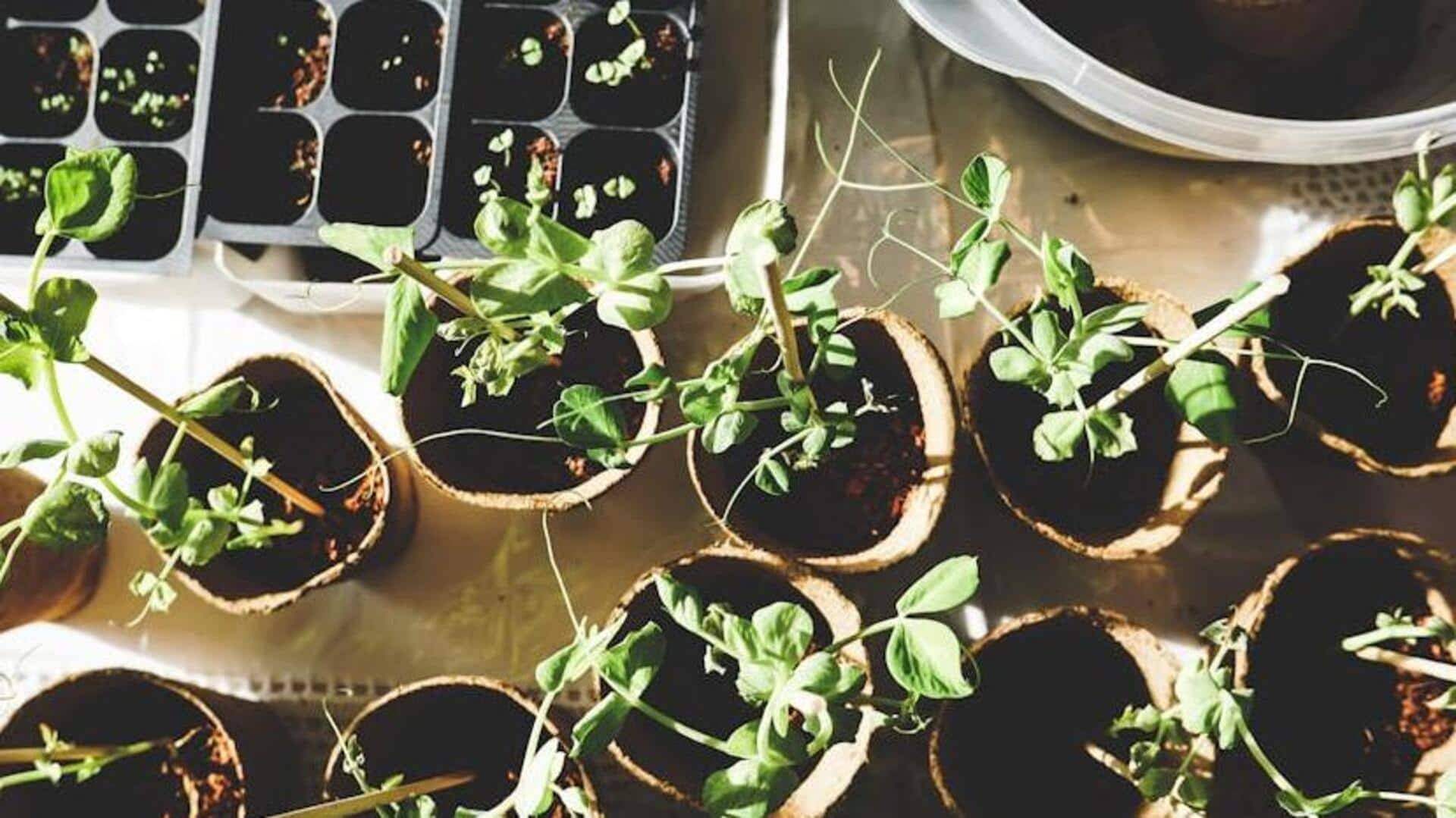
Thrifty gardening tricks for small spaces
What's the story
Gardening in small spaces poses a significant challenge, particularly for those managing on a tight budget. Yet, with a dash of creativity and resourcefulness, it's entirely feasible to cultivate a lush mini garden without substantial financial outlay. This article delves into practical and economical strategies designed to optimize limited space and resources, thereby fostering a flourishing garden.
Repurposing
Repurpose household items as planters
Instead of purchasing new pots, explore your home for items that can be creatively repurposed as plant containers. Old mugs, buckets, and even shoes can transform into unique planters with a bit of imagination. By drilling drainage holes at the bottom, you prevent waterlogging. This innovative approach not only conserves money but also infuses your garden with unparalleled character and charm.
Vertical gardening
Utilize vertical space wisely
When horizontal space is scarce, opt for vertical gardening. Install shelves or use hanging baskets to elevate plants. This approach maximizes space and enhances the aesthetics of walls or balconies. Climbing plants like ivy and certain vegetables, such as tomatoes, flourish in vertical setups. They not only provide lush greenery but also yield produce, making the most of limited areas.
Composting
Make your own compost
Creating compost from kitchen scraps is an effective method to reduce waste and enrich soil quality at no cost. Collect vegetable peels and coffee grounds in a bin or a corner of your garden. These materials decompose over time into nutrient-rich compost. This process boosts plant growth without the need for chemical fertilizers, offering a sustainable alternative.
Plant selection
Choose plants wisely
Selecting the right plants is crucial for small-space gardening success. Opt for dwarf varieties or plants that naturally require less room to grow, such as herbs (basil, mint), leafy greens (lettuce, spinach), and root vegetables (carrots, radishes). These choices ensure you get the most out of your limited space while minimizing costs on seeds or seedlings.
Seed swapping
Swap seeds with neighbors
Engage with fellow gardening enthusiasts in your community by swapping seeds instead of buying new ones every season. This practice not only fosters community spirit but also introduces variety into your garden at no extra cost. Many local gardening clubs or online forums facilitate seed swapping events where you can exchange seeds you have for those you need.